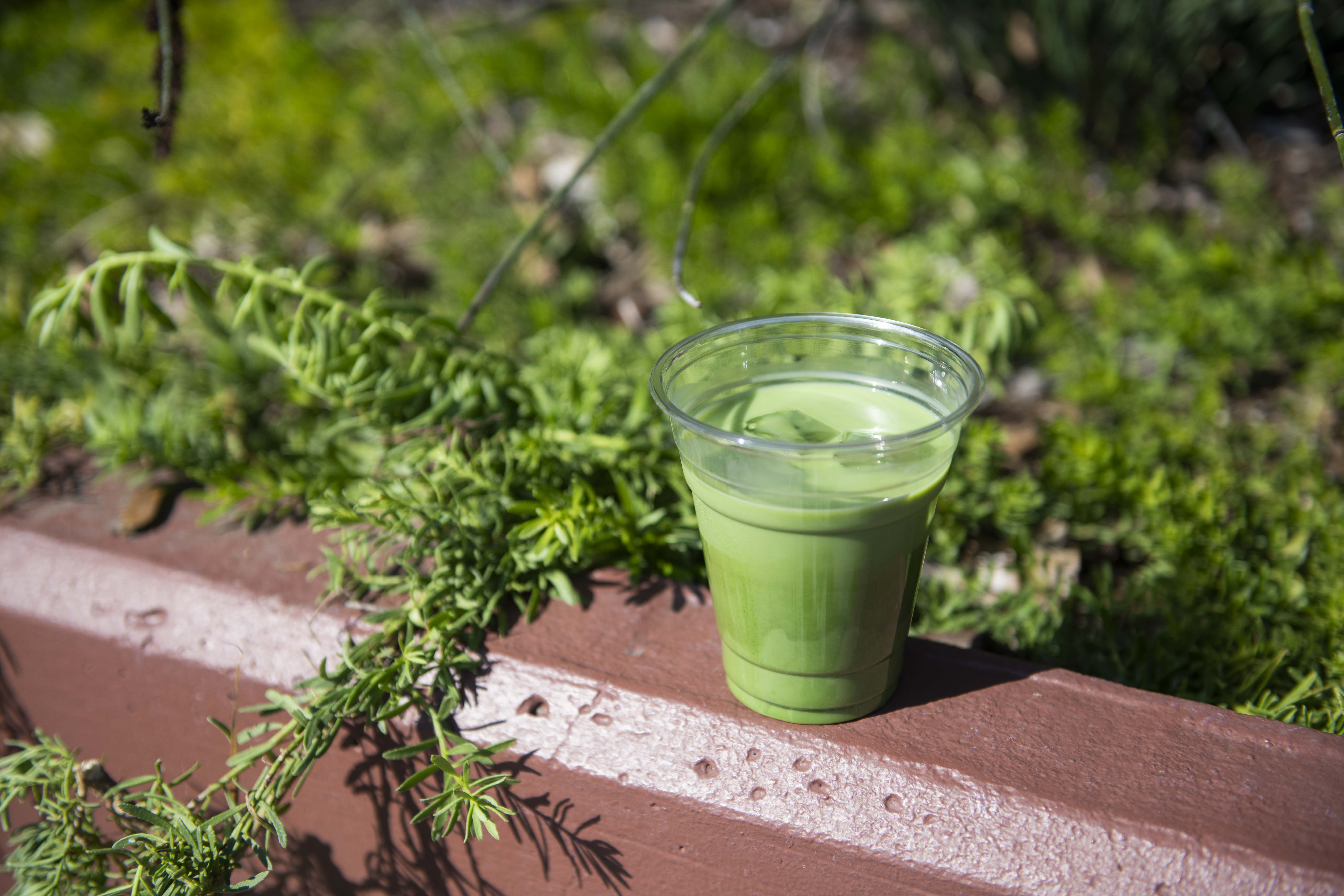Nekohama matcha brews new wave in Los Angeles caffeine scene

A matcha cup is placed near a bush. A new matcha brand has been showing up across Los Angeles and has made its way to Westwood. (Jeannie Kim/Daily Bruin senior staff)
By Leilani Krantz
Feb. 12, 2025 12:59 a.m.
A new matcha brand is mixing up Los Angeles’ caffeine scene – and is now in Westwood.
Ministry of Coffee added Nekohama matcha to its menu in October. The matcha brand has spread across LA from Koreatown to Santa Monica – and now to Westwood.
After connecting with Nekohama owner Max Ando through its supplier, the coffee shop decided to offer Nekohama’s ceremonial-grade blend, said Ministry of Coffee manager Kerem Kucukcelebi. The matcha’s flavor is unlike what he has had before, he added.
“I used to be more of a coffee person,” he said. “Now, matcha is good. Matcha lattes are not that bitter if you have a good matcha powder.”
Nekohama supplies an organic, first-harvest green tea blend, per its website. Ando said he spent around six months in Japan in 2024 to work directly with Japanese farms.
Inspired by his grandfather’s dedication to the quality of his rice business, Ando added that he and his team aim to control the standard of their product at every step.
“We use different machinery that actually helps protect the integrity of the product,” he said. “We use technology and innovation as a way to try to create a better product and a better experience for the end customer.”
Nekohama’s partnerships with cafes are personal and intentional, he added. The team chooses to work with establishments only after it have met them in person, and the cafes it works with must care about quality and be centers of community, he said.
“We really want to be more than just a provider of products,” Ando said. “We want to be a part of the story, be part of the community, be part of everything that’s built in that space.”
In Westwood, Ministry of Coffee saw its matcha sales increase by at least 25% in the month following the transition to Nekohama, Kucukcelebi said.
Globally, matcha products have likewise experienced a boom in business. Grand View Research found the worldwide matcha market was valued at $4.69 billion in 2024 and is projected to reach $7.43 billion in 2030, an increase of nearly 60%.
This change has taken place over the last 20 years, said Michelle Liu Carriger, an associate professor of theater and performance studies and the chair of the theater department at the UCLA School of Theater, Film and Television. A longtime practitioner of the Japanese tea ceremony, Carriger said she took a yearlong fellowship at the Urasenke Gakuen Professional College of Chado, a school in Japan specializing in the tradition.
She said she attributes the new interest in matcha to fitness and social media trends.
“Not only does it have access to this long tradition and a sort of exoticism, or even a Zen mindfulness feeling – and it’s supposedly very good for you and full of vitamins, et cetera – but it also just looks great on Instagram,” Carriger said.
Distinctions between grades of matcha made by newer brands do not exist in the tea ceremony world, she said, adding that instead of picking a powder that is “ceremonial grade,” tea practitioners opt for blends endorsed by school of tea ceremony grand masters. Commercially available powders, typically held in grocery stores, do not meet the taste standards required for the tea ceremony, Carriger said.
“A lot of the faddish matcha, it’s just not quite up to our standards,” she said. “So I’ll be interested to see about Nekohama.”
The Nekohama team is trying to set the standard for matcha quality with its singular line of matcha powder, Ando said. The leaves sourced for Nekohama’s matcha are among the most expensive, he added.
Focusing on the consistency of its product, Nekohama aims to provide matcha that is excellent every time, he added.
“What we’re trying to bring is a new vision to matcha,” Ando said. “Before, it was bitter. It wasn’t enjoyable on its own. It wasn’t always fresh. So what we hope people experience from all of our hard work in our supply chain and building this brand is that whenever you take a sip of Nekohama, it’s delicious, fresh and it’s good for you.”